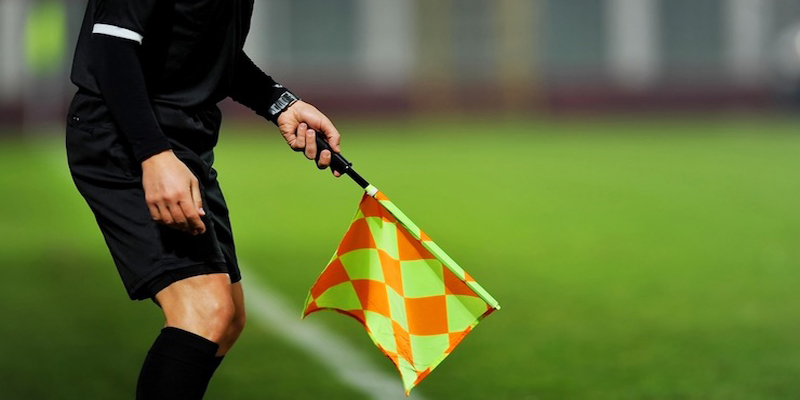
The Duties Of Assistant Referees and How They Assist The Main Referee
To officiate a good match, both the main referee and assistant referee are important. In this article, we will talk about the duties of assistant referees(linemens) and how they communicate with the main referee.
So what are the duties of the assistant referees in the matches?
Assistant referees, also known as linesmen, play a crucial role in soccer matches. Their main duties include:
1. Offside calls
Assistant referees are responsible for determining whether a player is in an offside position when a pass is made to them. They signal with their flag if they judge that the player receiving the ball was in an offside position when the ball was played.
2. Touchline decisions
Assistant referees also make decisions regarding whether the ball has gone out of play or not. They signal with their flag if the ball has crossed the touchline, either for a throw-in, corner kick or goal kick.
3. Foul recognition
Assistant referees can also help the referee in identifying fouls, particularly those that occur off the ball or outside the referee’s field of vision. They signal with their flag if they spot an infringement that the referee has missed.
4. Substitutions
Assistant referees also monitor substitutions, ensuring that players enter and exit the field of play correctly.
5. General assistance
Assistant referees are available to help the referee with any other tasks or decisions that may arise during the game.
Therefore, the assistant referees’ primary duties are to assist the referee in making accurate decisions on the offside, touchline decisions, fouls, substitutions, and any other tasks that may arise during the game. Their role is essential in ensuring fair play and maintaining the integrity of the game.
How does the assistant referee communicate with the main referee in the matches?
communication between the main referee and assistant referees is essential for making accurate decisions during a soccer match. Effective communication helps ensure that the game is played fairly and that decisions are made in a timely and accurate manner.
Assistant soccer referees communicate with the main referee using a combination of signals and verbal communication.
Flag signals
The most common way assistant referees communicate with the main referee is by using flag signals. When an offside offence occurs or the ball goes out of play, the assistant referee raises their flag to signal to the main referee. The main referee will then stop the match to make the appropriate decision.
Verbal communication
Assistant referees can also communicate verbally with the main referee. For example, if the assistant referee sees an incident that the main referee may have missed, they can call out to the referee to draw their attention to it. In addition, if the assistant referee has information about an incident that the main referee is unsure about, they can offer their opinion to help the main referee make a decision.
Headset communication
In some professional soccer matches, assistant referees and the main referee communicate via headsets. This allows for more efficient communication, particularly in noisy or crowded stadiums. The headset system also allows for communication between the referee team during pre-match, half-time, and post-match periods.
What should soccer assistant referees do when there is a conflict between players?
It’s important for assistant referees to remain calm and professional during conflicts between players. Their role is to assist the main referee and provide accurate information to help ensure that the game is played fairly and safely. if there are conflicts between players, the assistant referees should follow the steps below:
Alert the main referee
The first step for the assistant referee is to alert the main referee about the conflict. The assistant referee can signal to the main referee using their flag or call out to get their attention.
Provide information
The assistant referee should provide any relevant information to the main referee about the conflict. This could include the players involved, the nature of the conflict, and any other details that may help the main referee make a decision.
Assist the main referee
Once the main referee is aware of the conflict, the assistant referee should be ready to assist them in any way possible. This could include providing additional information, separating players, or helping to calm the situation.
Document the incident
After the match, the assistant referee should document the incident in their match report. This will provide a record of what happened and any actions taken by the referee team.
